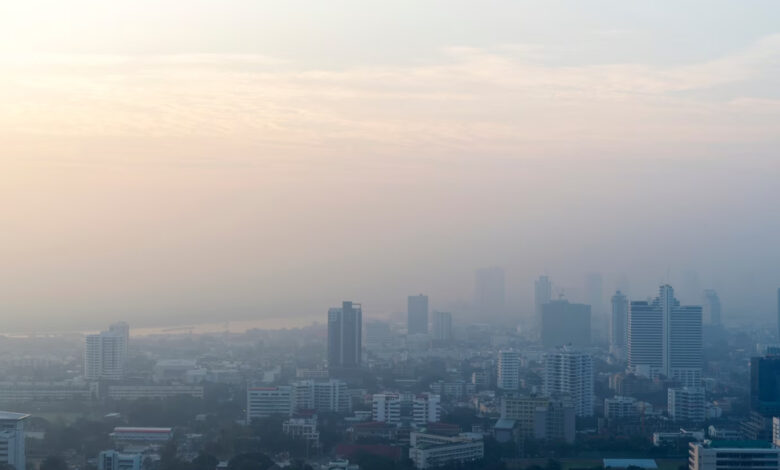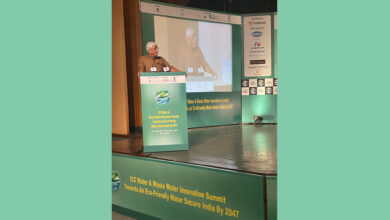UN Urges Urgent Action as Pollution Crisis Grips India

New Delhi: The United Nations has sounded the alarm over the escalating pollution crisis in India, emphasizing the urgent need for comprehensive measures to combat the severe pollution plaguing Indian cities.
Dr. Sumit Sharma, Program Officer of the United Nations Environment Program, expressed profound concerns, stating, “Common people are currently bearing the brunt of pollution, demanding a comprehensive policy to address this pressing issue.”
As winter sets in, pollution levels in India are on the rise, with devastating consequences for public health and economic well-being. Delhi, in particular, has seen pollution levels soar to hazardous levels exceeding 500, and experts predict a further increase, potentially crossing the alarming AQI 600 to 700 range, which poses significant health risks.
Speaking at the National Sustainability Symposium organized by the Indian Chamber of Commerce, Dr. Sharma emphasized, “In this critical situation, clean energy emerges as a compelling solution to restore the air quality in Delhi and its surrounding regions.”
Highlighting the urgent necessity for investment in clean energy, Dr. Sharma noted, “The escalating pollution crisis in Delhi and the National Capital Region is adversely affecting various sectors, including both organized and unorganized businesses. To combat the escalating pollution levels, an increase in clean energy investment is imperative.”
Dr. Sharma also stressed that while progress is underway, addressing the interconnected issues of biodiversity, climate change, and pollution remains paramount. “The consequences of one issue reverberate across the others. We must find holistic solutions, as a failure in one area adversely impacts all,” he asserted.
At the same Sustainability Symposium, Naresh Tyagi, Chief Sustainability Officer of the Aditya Birla Group, emphasized the critical role of private sector investment in accelerating climate solutions.
Tyagi stated, “India’s commitment to achieving net-zero carbon emissions by 2037, as announced by Prime Minister Narendra Modi at the COP26 climate summit, is a remarkable endeavor. However, this ambitious goal necessitates substantial financial support, estimated at around $1 trillion over the next decade. India has made commendable strides in renewable energy, but the transition from fossil fuels to clean energy is a monumental task. Sustainable finance, a collaborative effort involving government, business, and citizens, is the linchpin of this transformation.”
The United Nations has reported a worldwide epidemic of escalating pollution, with a nearly 100% increase in respiratory diseases, heart attacks, and lung-related illnesses over the past five years. The severe impact on public health has led to numerous fatalities, prompting a concerted effort to unite various agencies to confront this critical issue.






